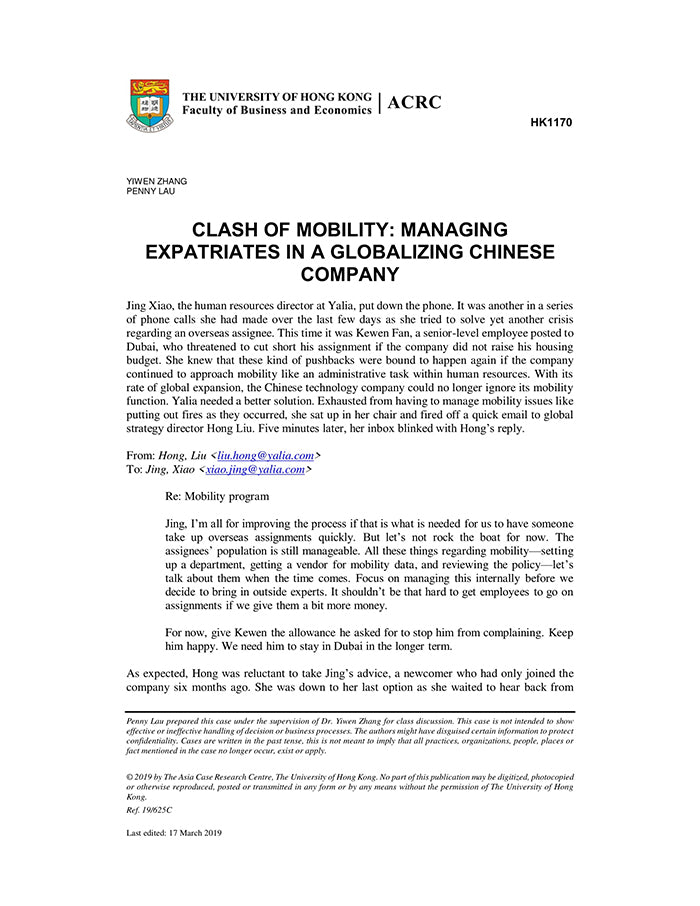Clash of Mobility: Managing Expatriates in a Globalizing Chinese Company
受取状況を読み込めませんでした
Yalia, a Chinese tech company that is experiencing rapid expansion overseas, has been sending more expatriates on assignment in recent years, but its approach to global mobility has not caught up. Managers are not strategic about the expatriation process. Existing mobility policy guidelines are unclear and has not been adjusted to address the company's expansion needs. Xiao Jing, the new human resources director at Yalia, is becoming frustrated with the outdated approach as she deals with a recent complaint from a Chinese mid-level manager, Fan Kewen. Fan, the head of Dubai's office, thinks it is unfair that his housing budget is lower than that of his US colleague from a newly acquired cloud solutions company, and he threatens to shorten his assignment. As she investigates further, she uncovered the difficulties of Fan working in a foreign culture, as well as differences in cultural and policy practices at Yalia and the acquired company. Jing suggests to Liu Hong, head of global strategy and managing director about a policy overhaul, but Hong dismissed, and instead asks her to use monetary incentives to keep assignees happy. What should she do? The case demonstrates how global mobility policies need to consider operational needs, business strategy and talent strategies. It breaks down the components of an expatriate package, and shows how culture can play into its design. It also shows the impact of having a well-structured, strategic approach to managing mobility programs.
【書誌情報】
ページ数:15ページ
サイズ:A4
商品番号:HBSP-HK1170
発行日:2019/6/4
登録日:2019/8/6


